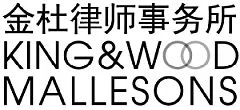- within Corporate/Commercial Law, Litigation, Mediation & Arbitration and Employment and HR topic(s)
- with Senior Company Executives, HR and Inhouse Counsel
- in United States
- with readers working within the Healthcare, Media & Information and Retail & Leisure industries
On 13 August 2010, the proposed acquisition of Alcon, Inc (Alcon) by Novartis AG (Novartis) was approved by the Ministry of Commerce (MOFCOM), with conditions. MOFCOM's public announcement in relation to this acquisition is located here. This is the 6th merger that has been approved with conditions, since the enactment of the Anti-Monopoly Law (AML) in 2008.1
Novartis and Alcon (the parties) are global suppliers of pharmaceutical products. Post-acquisition, Novartis would become the majority shareholder in Alcon. This transaction is worth approximately US$28 billion.
King & Wood acted as the sole Chinese legal counsel in respect of the antitrust aspects (including the antitrust filing) of this transaction.
Antitrust issues
During consultations with Novartis, Alcon and other stakeholders, MOFCOM was of the view that there were antitrust concerns in the following relevant markets: (a) the market for ophthalmic anti-inflammatory and anti-infective combination products; and (b) the market for lens care products. 2
MOFCOM was concerned about the impact of the acquisition on the markets described in (a) and (b) above (in light of Novartis' and Alcon's market shares in the relevant markets both globally and in China).
Ophthalmic anti-inflammatory and anti-infective combination products
MOFCOM noted that the combined global shares of the parties in relation to ophthalmic anti-inflammatory and anti-infective combination products was over 55%. The parties' combined shares for the same product market in China was over 60% (Alcon's share is over 60%; whereas Novartis' share is less than 1%).
In its antitrust submission to MOFCOM, Novartis articulated that it had planned to cease manufacturing and supplying its ophthalmic anti-inflammatory and anti-infective product known as "Infectoflam" (both in China and globally).
As a condition of clearance, MOFCOM made it mandatory that Novartis cease to supply Infectoflam in China by the end of 2010.3 MOFCOM stipulated that Novartis was not to supply Infectoflam in China for a period of 5 years. In addition, Novartis is also not to supply a different version or type of product like Infectoflam under a different brand-name in China.
Lens care products
The parties' combined global shares in relation to lens care product is almost 60%. In addition, the parties' combined shares for the same product market in China is almost 20%. Post-acquisition, the parties would become the second largest supplier of lens care products in China.
MOFCOM noted that one of Novartis' subsidiaries (Shanghai Ciba Vision Trading Co., Ltd) (Shanghai CV) has in place a distribution agreement with Haichang Contact Lens Co., Ltd (Haichang) to distribute lens care products in China. Haicheng is currently the largest manufacturer and supplier of lens care products in China (its share in China is over 30%).
MOFCOM was concerned that the parties would be able to collude on pricing and other issues with Haichang (via the distribution agreement), post-acquisition. According to MOFCOM, such collusion would restrict or exclude competition in the lens care product market in China. In light of this concern, MOFCOM stipulated that Novartis terminate its distribution agreement with Haichang, within 12 months after closing.
Comments
In its public announcement, MOFCOM did not take a stand as to whether the relevant geographic markets for the ophthalmic anti-inflammatory and anti-infective combination product market as well as for the lens care product market was global or China-wide. However, it appears that MOFCOM might have taken the parties' shares in both the global context as well as in the China context into consideration, in determining whether the acquisition would eliminate or restrict competition in China.
The Novartis and Alcon transaction is a cross-border or global deal. The parties have filed merger review applications in some 19 jurisdictions. Currently, the acquisition has been cleared by antitrust authorities in most of these jurisdictions.
1. The first 5 mergers that were approved with conditions were: (a) the acquisition of Lucite International Group Limited by Mitsubishi Rayon Co; (b) the acquisition of Anheuser Busch Companies Inc by InBev NV/SA; (c) the acquisition of Delphi Corp by General Motors Company; (d) the acquisition of Wyeth Corp by Pfizer Inc; and (e) the acquisition of SANYO Electric by Panasonic Corporation.
2. In their announcement dated 13 August 2010, MOFCOM did not stipulate whether the relevant geographic market was global or limited to China only.
3. Note that MOFCOM did not explain in their announcement how this restriction would assist in reducing any anti-competitive or harmful effect of the acquisition in the global or China-wide ophthalmic anti-inflammatory and anti-infective combination product market.
The content of this article is intended to provide a general guide to the subject matter. Specialist advice should be sought about your specific circumstances.



